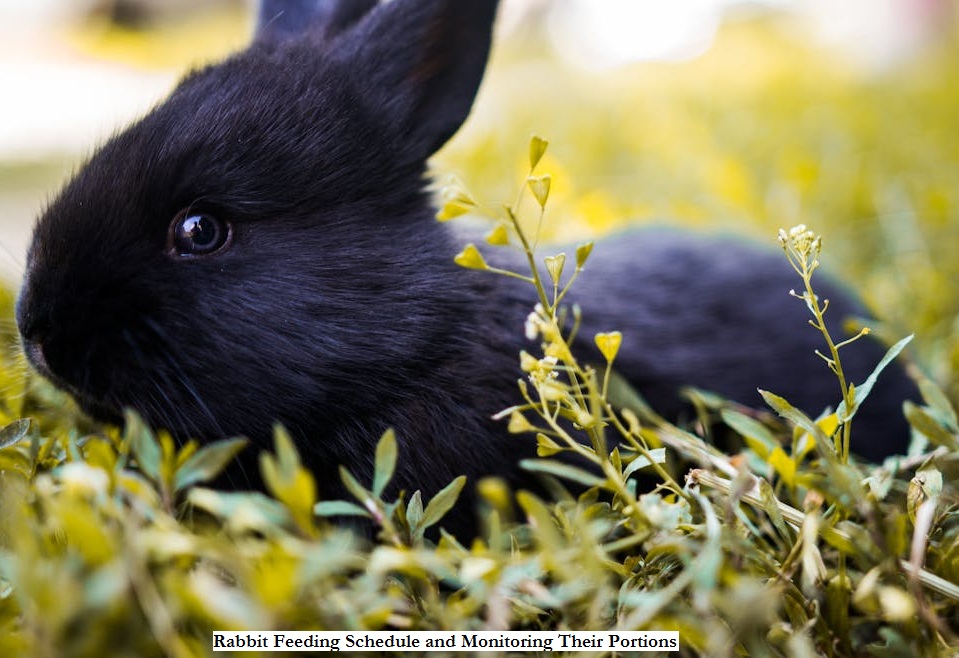You must pay attention to the rabbit feeding schedule when raising a rabbit at home. Rabbits are quite adorable pets. It is not surprising that many people choose to keep them. This animal with sparkling eyes has its charm.
Apart from their cute and funny shape, rabbits also have adorable behavior. Of course, they can also be very tame to keep. However, raising animals is not an easy matter. We must know how to treat it. That way, we can have clean, healthy, and nice animals.

The Right Rabbit Feeding Schedule
Caring for animals is a fun activity. Especially for those of you who are animal lovers. There are lots of interesting animals that we can make friends with.
Each animal has a different type of care. For this reason, before choosing one to keep, make sure you know how to care for it. So, we must not be careless in carrying out maintenance.
One thing to pay attention to is animal food. Well, these animals have different eating times and types of food. Including rabbits, rabbits have certain eating hours. So, here is the rabbits feeding time that you should know.
1. Solid Foods in the Morning
The rabbit usually feeds 3 times a day. So, the first thing you can do is give food in the morning. Ideally, at 8 am give food for them.
In the morning you can choose solid food. This solid food can be in the form of pellets. However, you can also adapt it to what is around you. Make sure to also provide drinking water for the rabbit like a cup of mineral water.
2. Wilted Vegetables During the Day
During the day you can give wilted vegetables. Especially in the middle of the day at 1 pm. This wilted vegetable aims to facilitate digestion in rabbits. Carrots are the right choice to give to rabbits. So you can give 1 or 2 carrots for lunch in the rabbit feeding schedule.
However, there is no need to force the rabbit to eat carrots if it does not want to. It is better to choose other types of vegetables because there are many recommendations.
For example, kale and broccoli. Both types of vegetables also have good nutritional content for the growth and development of rabbits.
In giving it, it can be whole. However, a few months ago kept a rabbit, but it was not greedy if it ate whole vegetables. If you also experience the same thing, you can cut the vegetables first. The rabbit will greedily eat its lunch menu.
According to the experience of an owner on the YouTube channel Small Pet Select, it is very important not to give rabbits fruit. We know that fruit is good for humans. However, for rabbits, fresh fruit is actually like biscuits or candy in the eyes of children. The high sugar content in fruit actually makes the performance of the rabbit’s digestive system less than optimal.
3. Solid Food or Withered Grass at Night
You can choose to give wilted vegetables or solid food for the rabbit feeding schedule at night. 7 p.m. is the ideal time to feed rabbits. Give him a little more food this evening. Remember, rabbits are one of the nocturnal animals that have activities at night.
Monitoring a Rabbit’s Food Portions
Apart from the feed schedule, monitoring a rabbit’s food portions is also no less important. Because it directly impacts their health and overall quality of life. Rabbits have unique dietary requirements that necessitate careful attention to portion sizes. Overfeeding can lead to various detrimental effects on pets health.
Firstly, understanding the importance of portion control for rabbits is essential. Rabbits are herbivores with a delicate digestive system. They thrive on a diet primarily consisting of hay, supplemented with fresh vegetables and a controlled amount of pellets.
Proper rabbit feeding schedule and portioning ensure they receive the right balance of pet nutrients. It’s crucial for their growth, maintenance, and also overall health. In particular, it is vital for dental health and maintaining proper digestion.
If a rabbit consumes an excess of food, particularly pellets or high-calorie treats, it can result in obesity. Obesity poses a significant risk to their well-being and longevity. Overweight rabbits are more susceptible to various health issues, including arthritis, respiratory problems, and hepatic lipidosis, a serious liver disorder.
Furthermore, obesity can diminish their overall quality of life, hindering their ability to move comfortably and engage in natural behaviors. Another critical aspect of monitoring food portions is preventing selective feeding.
Rabbits may selectively eat only certain components of their diet, neglecting essential nutrients. By controlling portions, caretakers can ensure that rabbits consume a well-rounded diet, meeting all their nutritional requirements.
So, that’s the rabbit feeding schedule and their portions that are important for you to know. By knowing the type and schedule of food, your rabbit will be well looked after. /Edit



